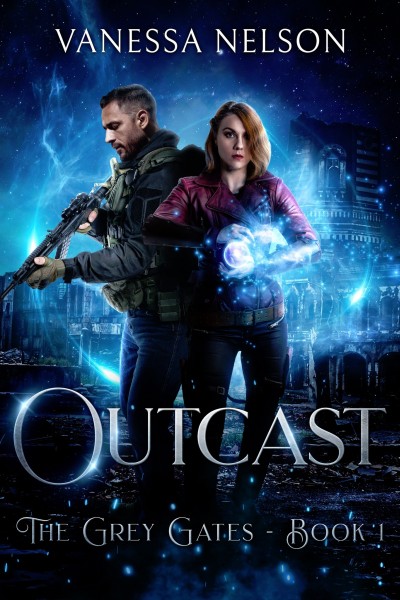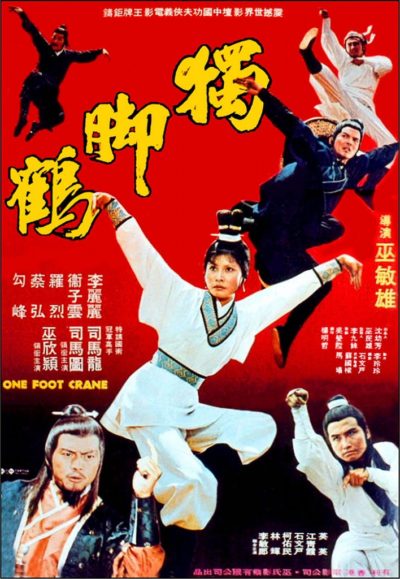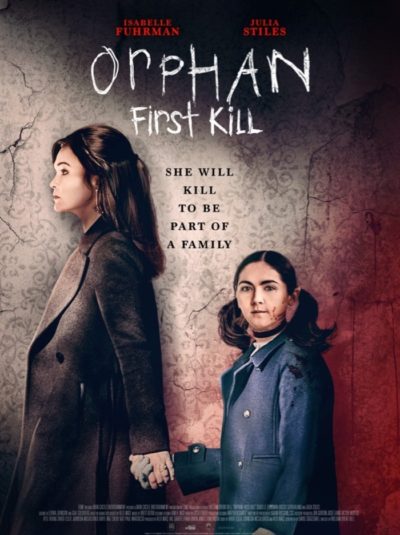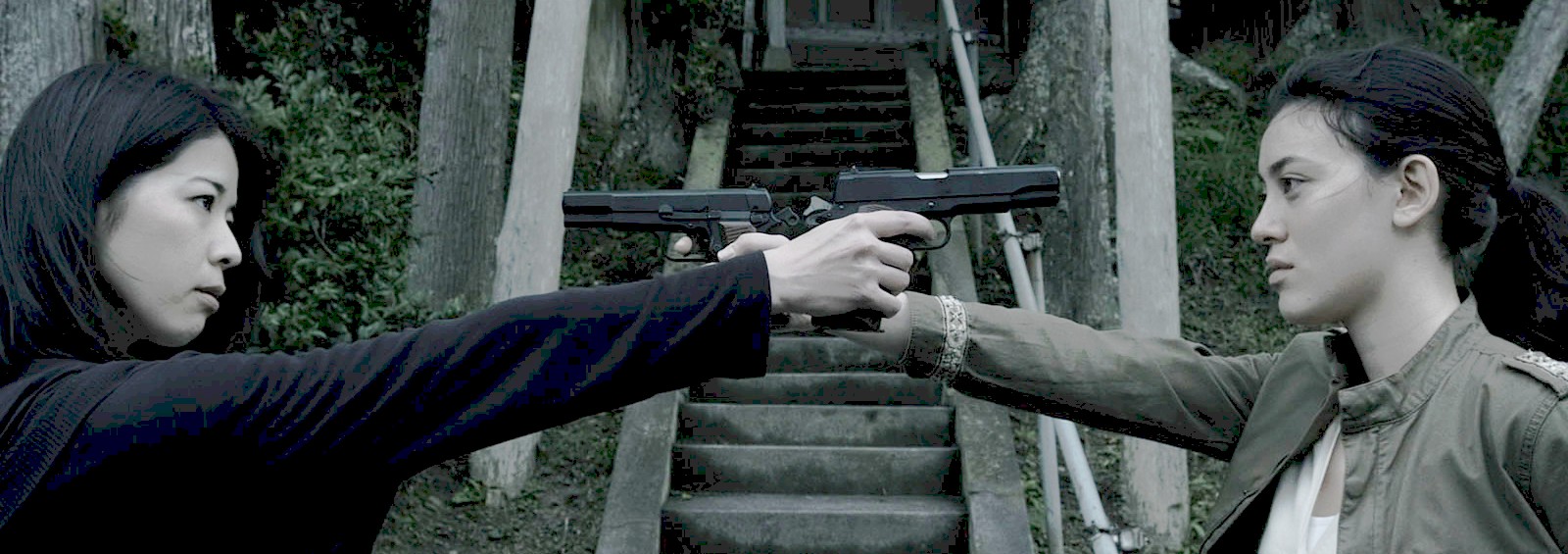★★★
“Too much soap, rather than opera.”
 Having very much enjoyed the Our Girl movie, I was interested in checking out the TV series version, which ran for four seasons from 2013 through 2020. You’ll notice, however, that only two are being covered here. Part of the reason for that is logistical: only seasons 1-2 are available on any of our current streaming services. That wouldn’t necessarily be an absolute show-stopper. But there were also reasons why we – mostly Chris – opted to draw a line under the second season. Each series tells the story of a different nurse in the British army. The first is about teenager Molly Dawes (Turner), who joins to escape a dead-end life in East London. The second follows established soldier Georgie Lane (Keegan).
Having very much enjoyed the Our Girl movie, I was interested in checking out the TV series version, which ran for four seasons from 2013 through 2020. You’ll notice, however, that only two are being covered here. Part of the reason for that is logistical: only seasons 1-2 are available on any of our current streaming services. That wouldn’t necessarily be an absolute show-stopper. But there were also reasons why we – mostly Chris – opted to draw a line under the second season. Each series tells the story of a different nurse in the British army. The first is about teenager Molly Dawes (Turner), who joins to escape a dead-end life in East London. The second follows established soldier Georgie Lane (Keegan).
The first is considerably more successful, with a better character arc for the lead – it’s basically an extended remake of the film, with all its strengths, including a fine performance from Turner. It goes further into her career, going through her first tour in Afghanistan, where Molly’s relationship with a local girl opens a whole can of worms. There is some soap opera stuff, in a love triangle between her, commanding officer Captain Charles James (Aldridge) and fellow soldier Dylan Smith (Iwan Rheon), but it’s not overpowering. The action side of things is well-handled – South Africa stands in for the Middle East – with the tension of patrols in a hostile environment, where even a child is a potential threat, being particularly apparent.
In the second season, however, the balance tips. Lane has a mission in Ethiopia, where she draws the ire of British jihadist Abu Jasser (Michael James), which continues to imperil her after she returns to Britain. While this strand, as well as the kidnapping and rescue of Georgie which precedes it, is fine, there’s another love-triangle, and this one is much more annoying. Georgie was previously stood up at the altar by a comrade, Elvis Harte (Pasqualino), and is now engaged to Dr. Jamie Cole (Royce Pierreson). However, while in Ethiopia, Harte shows up and begins to work his way back into her affections. It’s this element which caused Chris to lose both sympathy for and interest in the lead character, and eventually, the show.
I can see where’s she’s coming from, because it’s hard to empathize with a heroine whose sense of loyalty appears to be so weak. I get that this angle was injected to add dramatic tension. But Georgie’s eventual, not unreasonable, realization that she’s not the marrying kind, didn’t require her to (and I quote) “slut around.” On the heels of a not dissimilar situation in season 1, the implication is that women in the armed forces will inevitably end up getting romantically involved with their fellow soldiers, which I suspect is not the intended message. Discovering the two further seasons continue to follow Georgie, rather than a new character, was enough to get us to pull the plug prematurely, and move on.
Creator: Tony Grounds
Star: Lacey Turner, Michelle Keegan, Ben Aldridge, Luke Pasqualino





 I guess it’s equality at work. This film, written by, starring and directed by women, proves that they are every bit as capable as men… Of knocking out vaguely competent, forgettable, low-to-mid tier action films, anyway. #GirlBoss This is another in the ongoing series of Tubi Originals I’ve reviewed here, including
I guess it’s equality at work. This film, written by, starring and directed by women, proves that they are every bit as capable as men… Of knocking out vaguely competent, forgettable, low-to-mid tier action films, anyway. #GirlBoss This is another in the ongoing series of Tubi Originals I’ve reviewed here, including  This is a solid slice of urban fantasy, taking place in a city surrounded on all sides by The Wild. This is more or less what it sounds like, a wilderness inhabited by a variety of monstrous creatures, most of which pose a significant threat to human life. They’re kept out of the city by magical barriers, but these are imperfect. When they fail, and the creatures enter the city, it’s up to the Marshals to hunt them down and contain the threat. One such is Max Ortis, though she only joined them after being kicked out of the Order, eight years previously.
This is a solid slice of urban fantasy, taking place in a city surrounded on all sides by The Wild. This is more or less what it sounds like, a wilderness inhabited by a variety of monstrous creatures, most of which pose a significant threat to human life. They’re kept out of the city by magical barriers, but these are imperfect. When they fail, and the creatures enter the city, it’s up to the Marshals to hunt them down and contain the threat. One such is Max Ortis, though she only joined them after being kicked out of the Order, eight years previously. This ended up turning into an Internet investigation. The title above is the one by which it appeared on Tubi. But it’s clearly pasted onto the opening credits, and I ended up having to go through the IMDb credits for the one identifiable actress to find it there – where it appears under another title, with some promo materials giving it a third name. The end credits are entirely in Chinese, and provide absolutely no information as to who is playing who. So that also had to be pieced together. But least helpful of all, were subtitles that may be generated by a drunk AI, operated by a seven-year-old
This ended up turning into an Internet investigation. The title above is the one by which it appeared on Tubi. But it’s clearly pasted onto the opening credits, and I ended up having to go through the IMDb credits for the one identifiable actress to find it there – where it appears under another title, with some promo materials giving it a third name. The end credits are entirely in Chinese, and provide absolutely no information as to who is playing who. So that also had to be pieced together. But least helpful of all, were subtitles that may be generated by a drunk AI, operated by a seven-year-old We begin with the murder of a family, with the sole (apparent) survivor being a small child, Fung Lin-yi (Li), who is able to escape. Rescued by – and stop me if you’ve heard this one before – a kung-fu master, she is rigourously trained in the titular style of martial arts. It’s fairly nifty, not least for the dagger hidden in the tip of her shoe which she uses to administer the coup de grace, Rosa Klebb style. Fifteen years later, she’s ready to seek revenge on the quartet of outlaws responsible for killing her family, who unlike our heroine, appear not to have aged a day over the decade and a half since they participated in the slaughter. Matters are complicated by a few factors. Her first victim is the father of one of the outlaws, who then starts tracking down the mysterious “One Foot Crane” responsible. There’s also a police official investigating the situation (Sze), and it turns out Lin-yi may not be the only survivor after all (Wei).
We begin with the murder of a family, with the sole (apparent) survivor being a small child, Fung Lin-yi (Li), who is able to escape. Rescued by – and stop me if you’ve heard this one before – a kung-fu master, she is rigourously trained in the titular style of martial arts. It’s fairly nifty, not least for the dagger hidden in the tip of her shoe which she uses to administer the coup de grace, Rosa Klebb style. Fifteen years later, she’s ready to seek revenge on the quartet of outlaws responsible for killing her family, who unlike our heroine, appear not to have aged a day over the decade and a half since they participated in the slaughter. Matters are complicated by a few factors. Her first victim is the father of one of the outlaws, who then starts tracking down the mysterious “One Foot Crane” responsible. There’s also a police official investigating the situation (Sze), and it turns out Lin-yi may not be the only survivor after all (Wei). I’ve not seen the original Orphan. I suspect this does not matter very much, since what we have here is a prequel. I will admit to having been lured in by the barking mad central idea. It does justice to the lunacy, though can’t sustain itself entirely, and at least somewhat collapses under its own weight. We begin in Estonia, where Leena (Fuhrman) is a very, very angry 31-year-old. Not without justification, being trapped in a 9-year-old’s body due to a hormonal condition. Previous violence has got her committed to a secure facility, but Leena breaks out and decides to adopt the identity of Esther Albright, an American child who went missing years previously.
I’ve not seen the original Orphan. I suspect this does not matter very much, since what we have here is a prequel. I will admit to having been lured in by the barking mad central idea. It does justice to the lunacy, though can’t sustain itself entirely, and at least somewhat collapses under its own weight. We begin in Estonia, where Leena (Fuhrman) is a very, very angry 31-year-old. Not without justification, being trapped in a 9-year-old’s body due to a hormonal condition. Previous violence has got her committed to a secure facility, but Leena breaks out and decides to adopt the identity of Esther Albright, an American child who went missing years previously.  ★★
★★ Football is known as “The beautiful game,” but you wouldn’t know it based on this documentary, which seems perversely intended to remove anything like that from its topic. It focuses on
Football is known as “The beautiful game,” but you wouldn’t know it based on this documentary, which seems perversely intended to remove anything like that from its topic. It focuses on  Margo Crane (DelaCerna) has been brought up by her native American father, since her mother walked out on them several years ago. Under his guidance, they have become self-sufficient, and Margo has become a crack shot. However, her creepy uncle ends up having sex with the teenager, an incident for which she gets blamed, ruining her life. She resolves to apply her shooting skills on him, only for the resulting incident to become a tragedy. Margo strikes out on her own up the Stark river, in search of her absent mother. Doing so, she meets a variety of people, then has to try and reconnect with a woman who now has her own life, one not necessarily helped by the unexpected arrival of a teenager.
Margo Crane (DelaCerna) has been brought up by her native American father, since her mother walked out on them several years ago. Under his guidance, they have become self-sufficient, and Margo has become a crack shot. However, her creepy uncle ends up having sex with the teenager, an incident for which she gets blamed, ruining her life. She resolves to apply her shooting skills on him, only for the resulting incident to become a tragedy. Margo strikes out on her own up the Stark river, in search of her absent mother. Doing so, she meets a variety of people, then has to try and reconnect with a woman who now has her own life, one not necessarily helped by the unexpected arrival of a teenager. It probably didn’t help that I watched this the same day as I finished off the slick, well-animated and occasionally downright beautiful
It probably didn’t help that I watched this the same day as I finished off the slick, well-animated and occasionally downright beautiful